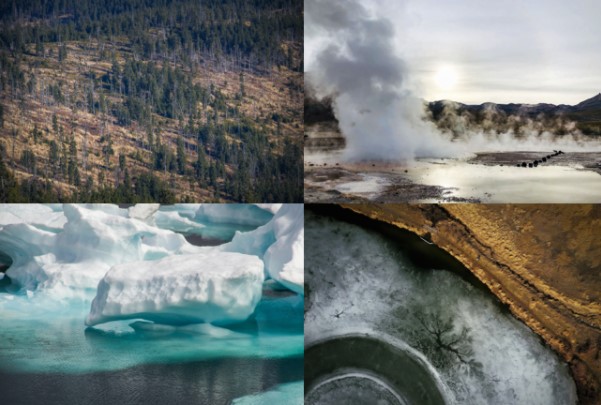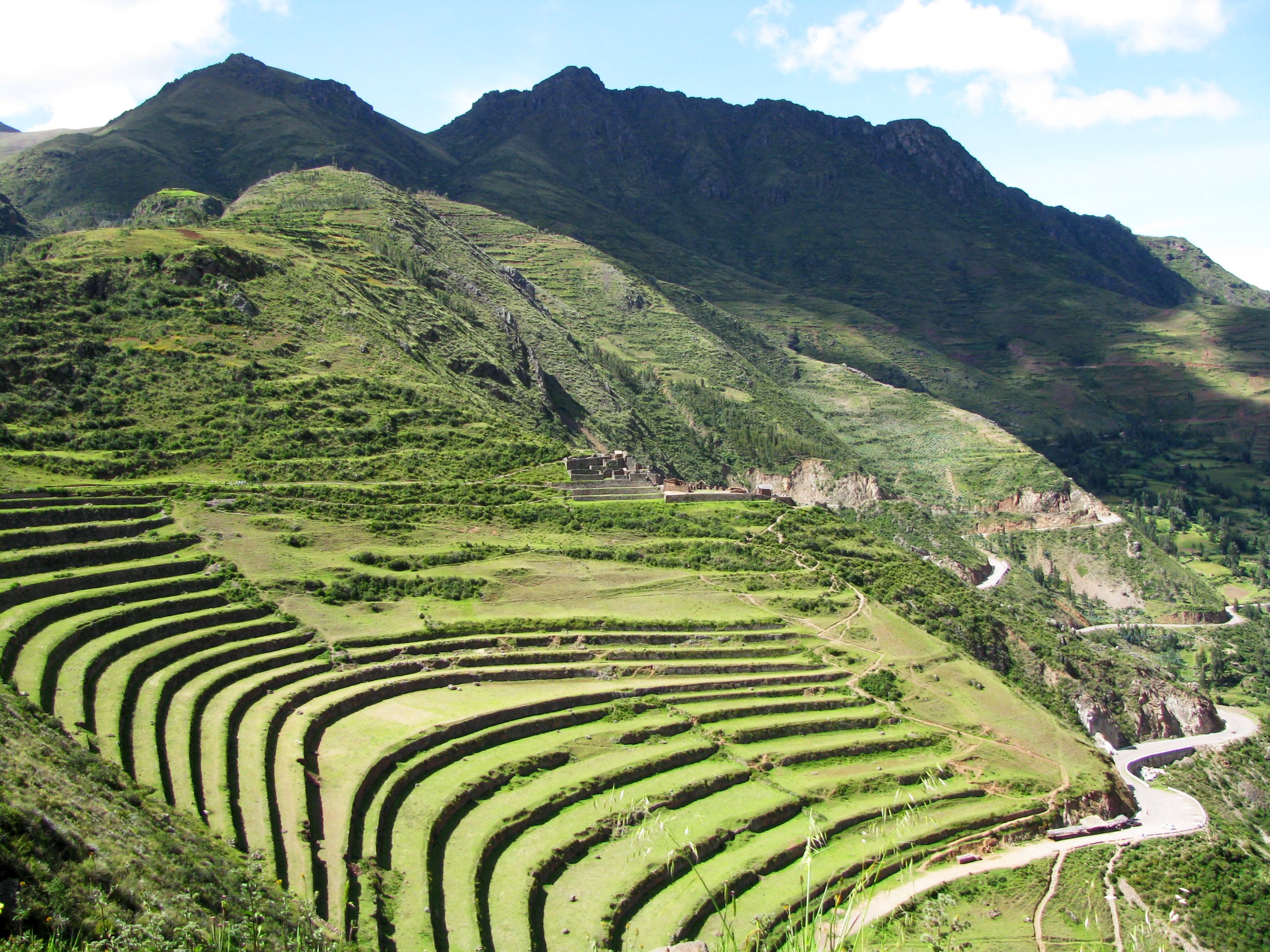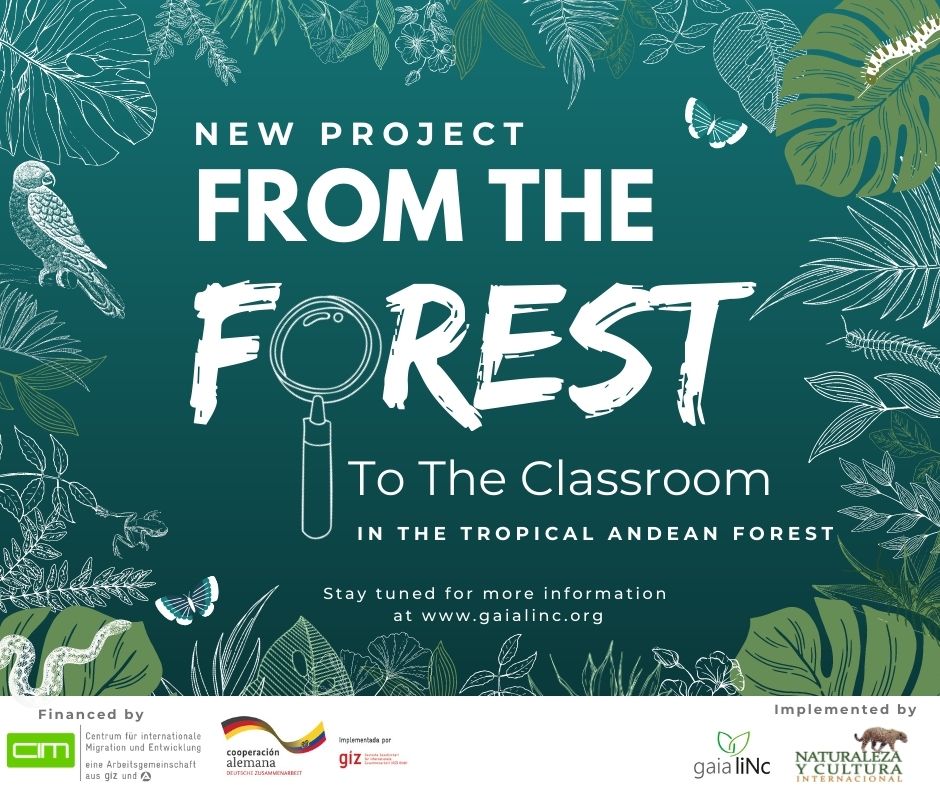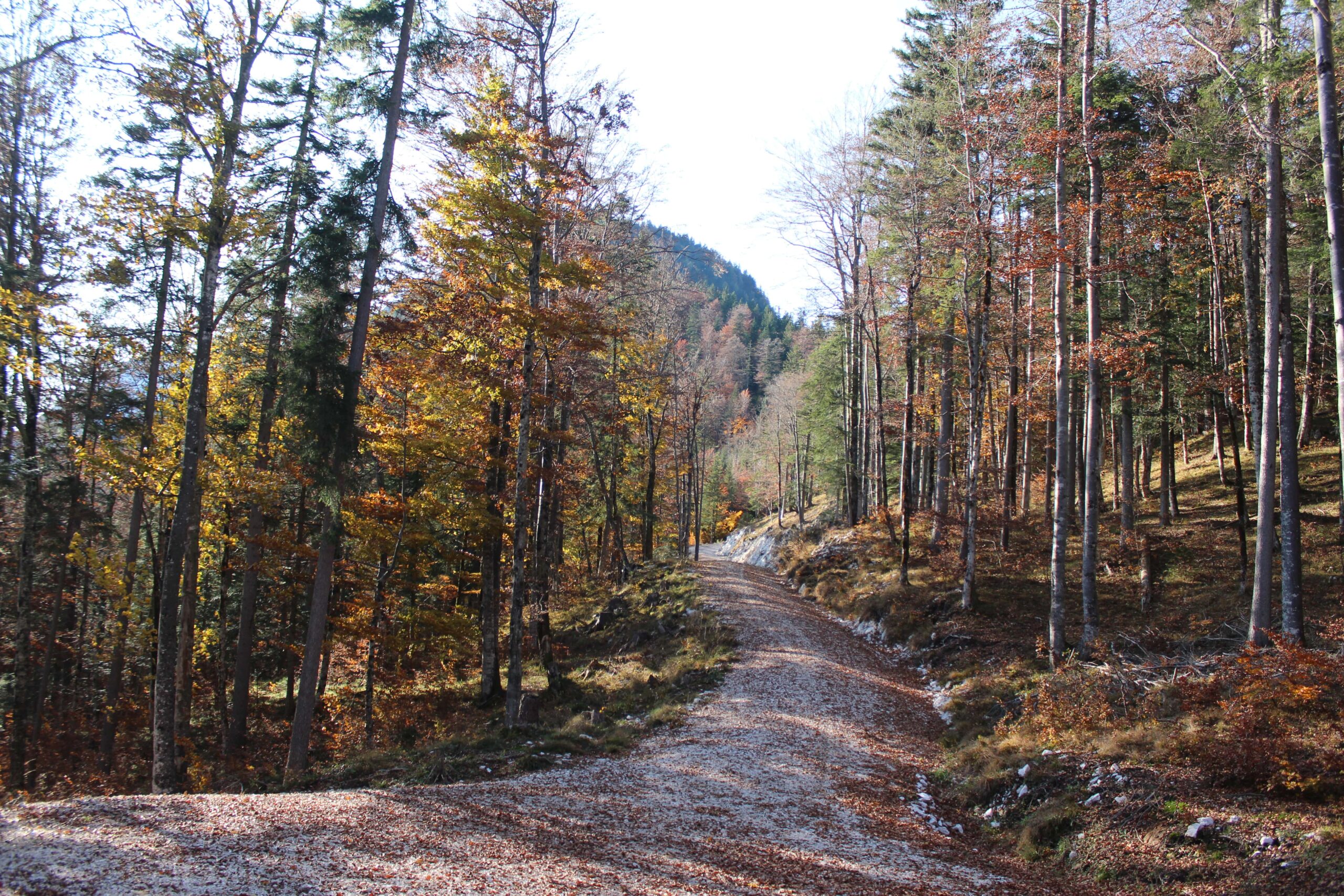News & Blog
Category
Environmental Education
"From the Forest to the Classroom" - In the Tropical Andean Forest
By Valeria Sorgato, Member of gaia-liNc
December 18th, 2020
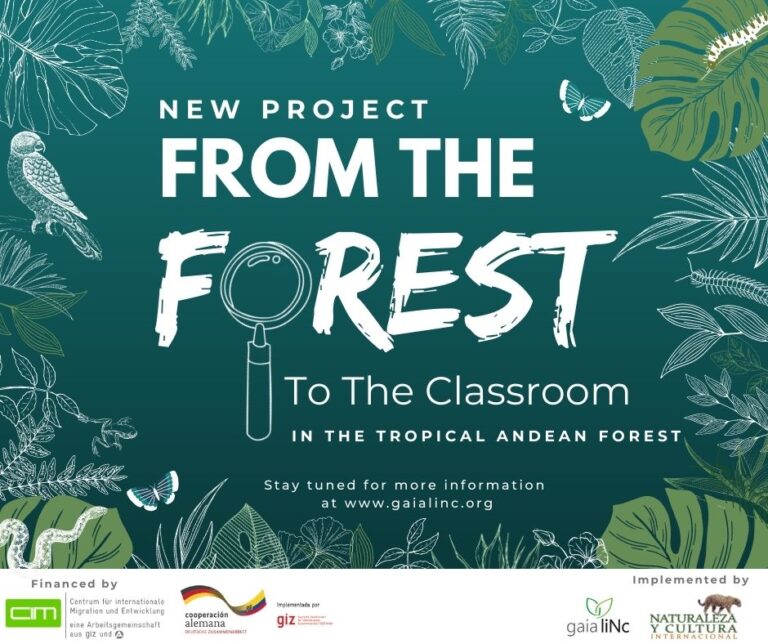
Environmental education is the bedrock to build a responsible, informed, and environmental-conscious society. It connects students with nature and encourages children to take action to improve their local environment. The United Nations’ Sustainable Development Goals 4 (Quality Education) calls nations to increase access and quality to education with more effective and equitable techniques in order to achieve a more sustainable and just society (Rodríguez-Piñeros et al., 2020).
This is why gaia-liNc e.V. in partnership with Nature and Culture International Ecuador will implement a project called ‘From the Forest to the Classroom- Increasing knowledge and understanding of mountain forests in schools of Loja and Zamora, in southern Ecuador’ aims to transfer the forest and environmental knowledge generated in the area to high schools in the region.
This project will work both with students and teachers building capacities on the importance of mountain forests and scientific research to engage students in the conservation of their local forest. We will work with around 700 students from 10 schools in Loja and Zamora, in southern Ecuador.
Biodiversity importance of the area
Southern Ecuador harbors an outstanding richness of landscapes. The area our project is located is considered to be the Tropical Andean forest biodiversity hotspot. Additionally, it constitutes an effective and discrete biogeographical barrier and a transition zone between to other biodiversity hotspots, the Tumbes-Choco-Magdalena in the west and the Amazonian lowlands in the east. Therefore, our project locations lie within one of the most biodiverse regions in the world containing one-sixth of all pant species in the Tropical Andes and a high degree of endemism (Bognes et al., 2016).
What are we going to implement?
Nature and Culture International Ecuador has a scientific research (Estación Científica San Francisco) in the area that has been conducting research on biodiversity, ecosystems services and climate change for the last 20 years collaborating with international and local scientists. Our project will build upon the previous work and together with experts, we will develop the environmental content of pedagogical material (including a handbook and a workbook). Our activities also include capacity-building workshops to the respective teachers as well as other innovative educational techniques.
The project will start in February 2021 and it is funded by the Center for International Migration and Development (CIM), which is jointly run by Deutsche Gesellschaft für Internationale Zusammenarbeit (GIZ) GmbH and the German Federal Employment Agency.
In the next couple of months, we will share more news on the project. In the meantime, if you have enquiries or would like to contact us, please write me at vsorgato@gaialinc.org.
Valeria Sorgato
Project Manager
Follow us on social media for more news:
Facebook here
LinkedIn here
Twitter here
References:
Bognes, F., Bendix, J. & Beck, E. (2016). Biodiversity Hotspot: Tropical Mountain Forests. Naturaleza y Cultura Internacional Ecuador.
Rodríguez-Piñerosa, S., Walji, K., Rekolac, M., Owuord, J., Lehtoe, A., Agyemang Tutue, S. & Giessen; L. (2020). Innovations in forest education: Insights from the best practices global competition. Forest Policy and Education, Vol. 118. https://doi.org/10.1016/j.forpol.2020.102260.
